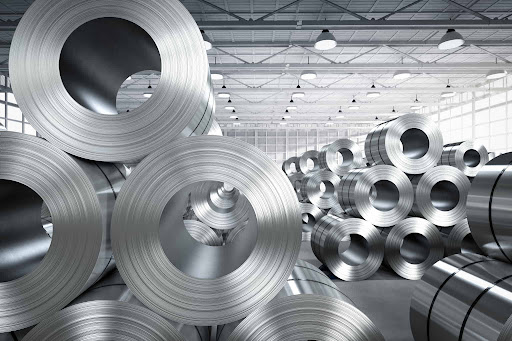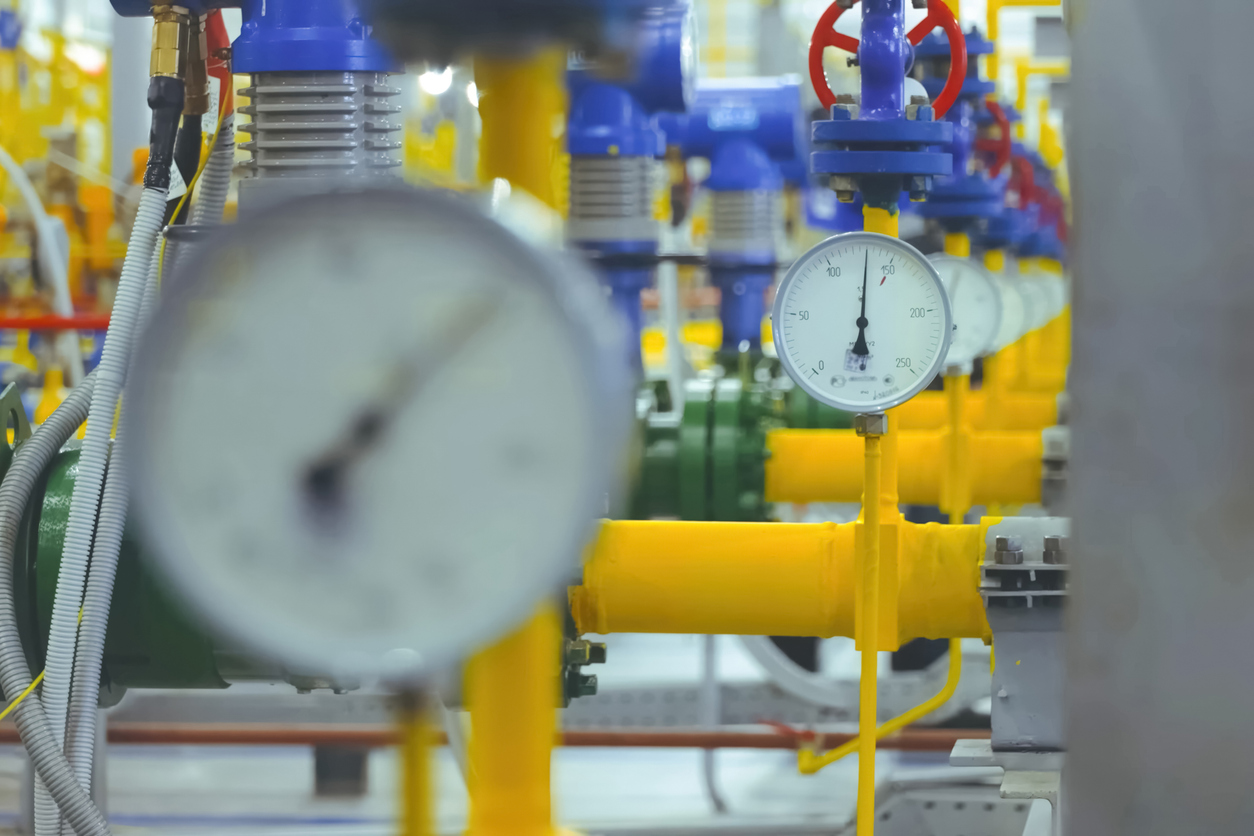The Role of Wigmore Trading in Revolutionizing Aluminium Production in Nigeria
The Role of Wigmore Trading in Revolutionizing Aluminium Production in Nigeria
Aluminium production is a critical industry that drives economic growth and development in Nigeria. And at the forefront of this revolution is Wigmore Trading, a game-changer in transforming the landscape of aluminium manufacturing in the country. Join us as we explore the pivotal role that Wigmore Trading plays in revolutionizing aluminium production and catapulting Nigeria to new heights of success.
Introduction to Wigmore Trading and their role in the aluminium industry in Nigeria
Introduction to Wigmore Trading and their role in the aluminium industry in Nigeria
Wigmore Trading is a leading trading company that has been operating in Nigeria for over 20 years. The company specializes in the importation, distribution, and marketing of various products, including metals, chemicals, and agricultural commodities. However, one of its major contributions to the Nigerian economy is its involvement in the aluminium industry.
Nigeria is one of Africa’s largest producers of aluminium, with vast reserves of bauxite – the primary raw material used in aluminium production. Despite this potential, the country’s aluminium production has been limited due to several factors such as insufficient infrastructure and outdated technology.
This is where Wigmore Trading comes into play. The company recognized the immense potential of Nigeria’s aluminium industry and saw an opportunity to contribute to its growth and development. With their expertise in international trade and access to global markets, Wigmore Trading embarked on a mission to revolutionize the aluminium production sector in Nigeria.
Over the years, Wigmore Trading has formed strategic partnerships with some of the world’s leading suppliers of raw materials and equipment for aluminium production. This has enabled them to provide high-quality inputs at competitive prices to local manufacturers. By bridging this gap between supply and demand for raw materials, Wigmore Trading has played a crucial role in boosting production capacity and efficiency within the Nigerian aluminium industry.
Moreover, Wigmore Trading also offers technical support services through its team of experts who are well-versed in modern technologies used in aluminum smelting processes. This includes providing training programs for local technicians on how to operate advanced machinery efficiently. This transfer of knowledge not only improves productivity but also enhances competitiveness within the industry.
Furthermore, as part of their corporate social responsibility initiatives, Wigmore Trading also supports small-scale local producers by providing them with affordable financing options for purchasing necessary equipment or materials needed for their operations.
Through these efforts, Wigmore Trading has contributed significantly to the growth of Nigeria’s aluminium industry. The increased production capacity has not only created job opportunities for locals but also reduced the country’s dependence on imported finished products, leading to a boost in the economy.
Wigmore Trading has played a crucial role in revolutionizing the Nigerian aluminium industry by bridging supply and demand gaps, providing technical support and training programs, and supporting small-scale producers. As Nigeria continues to develop its industrial sector, Wigmore Trading remains committed to driving innovation and progress within the aluminium industry.
Overview of the Aluminium Production Industry in Nigeria
The aluminium production industry in Nigeria has been a major contributor to the country’s economy, accounting for a significant percentage of its total export revenue. Aluminium is a versatile metal that is used in various industries, including construction, transportation, and packaging. In Nigeria, the demand for aluminium products has been steadily increasing due to rapid urbanization and industrialization.
Despite the potential of the aluminium industry in Nigeria, it has faced several challenges over the years. These challenges include inadequate infrastructure, high energy costs, and limited access to raw materials. As a result, the country has had to rely on importation to meet its domestic demand for aluminium products.
However, with the establishment of Wigmore Trading Limited in 1995 by Mr. Adewale Adetunji, there has been a significant transformation in the Nigerian aluminium production industry. Wigmore Trading is a leading importer and distributor of high-quality aluminum profiles and accessories from Europe and Asia. The company’s entry into the market brought about positive changes that have revolutionized the industry.
One of these changes is providing local manufacturers with access to affordable and high-quality raw materials through their partnerships with reputable international suppliers. This has reduced their reliance on imported finished products and enabled them to produce locally made aluminium products at competitive prices.
Moreover, Wigmore Trading has invested heavily in developing modern manufacturing facilities equipped with state-of-the-art technology for extrusion processes. This investment has led to an increase in production capacity and efficiency while reducing energy costs significantly.
Wigmore Trading also plays a vital role in promoting sustainable practices within the Nigerian aluminium industry. The company uses eco-friendly production methods that minimize waste generation and reduce environmental impact.
Additionally, Wigmore Trading actively supports local businesses by providing technical training programs for fabricators and installers across different regions of Nigeria. This initiative aims at enhancing skills development within the sector while also creating job opportunities for Nigerians.
Wigmore Trading’s contributions have had a significant impact on the aluminium production industry in Nigeria. The company’s commitment to providing high-quality raw materials, promoting sustainable practices, and supporting local businesses has helped to revolutionize the sector, making it more competitive both locally and internationally. With Wigmore Trading’s continued efforts, the future of the Nigerian aluminium industry looks promising.
Challenges faced by the industry before Wigmore Trading
Before the emergence of Wigmore Trading, the aluminium production industry in Nigeria faced several challenges that hindered its growth and development. These challenges ranged from inadequate infrastructure to lack of skilled labor and technological advancements.
One of the major challenges faced by the industry was the inadequate power supply. Aluminium production is an energy-intensive process, requiring a constant and reliable source of electricity. However, frequent power outages and limited access to electricity in Nigeria made it difficult for companies to maintain consistent production levels, resulting in increased costs and decreased efficiency.
Another challenge was the lack of modern technology and equipment. Most aluminium production companies in Nigeria were still using outdated machinery and techniques, which resulted in low productivity and poor product quality. This not only affected their competitiveness in the global market but also hindered their ability to meet domestic demand.
Moreover, there was a shortage of skilled labor in the industry. The few available workers lacked proper training and technical knowledge, leading to subpar performance and frequent accidents on site. This not only posed a risk to workers’ safety but also added additional costs for companies due to compensation claims.
Additionally, there were logistical challenges such as poor transportation infrastructure and high import tariffs on raw materials needed for aluminium production. This made it difficult for companies to obtain essential materials at affordable prices, further increasing their operational costs.
The regulatory environment also presented significant obstacles for aluminium producers in Nigeria. Inconsistent policies, bureaucratic red tape, and corruption made it challenging for businesses to operate efficiently within legal boundaries. This created a challenging business environment that hindered growth opportunities for existing players while deterring new investors from entering the market.
However, with Wigmore Trading’s emergence into the scene as a major player in providing crucial support services such as sourcing raw materials and supplying modern machinery/technologies; these challenges have been greatly mitigated or overcome altogether.
Wigmore Trading has been able to address most of these issues by leveraging its extensive network of suppliers and partners worldwide to provide affordable and reliable raw materials. Additionally, they have introduced advanced machinery and technologies that have significantly increased productivity and improved product quality.
The company has also invested in training programs for local workers, equipping them with the necessary skills and knowledge to operate modern equipment safely. This has not only improved the overall performance of the industry but also provided job opportunities for locals, contributing to the growth of the economy.
Furthermore, Wigmore Trading’s strong relationships with government agencies have helped streamline regulatory processes, making it easier for companies to operate within legal boundaries. This has created a more stable business environment that encourages growth and attracts foreign investments.
Before the emergence of Wigmore Trading, the aluminium production industry in Nigeria faced numerous challenges that hindered its progress. However, with their innovative solutions and strategic partnerships, Wigmore Trading has played a significant role in revolutionizing the industry and positioning Nigeria as a major player in the global market.
How Wigmore Trading revolutionized the industry with their innovative techniques and technologies
Since its establishment in 1980, Wigmore Trading has been at the forefront of revolutionizing the aluminium production industry in Nigeria. The company has constantly strived to improve and innovate its techniques and technologies to provide a better quality of products and services to its clients.
One of the ways Wigmore Trading has revolutionized the industry is through their innovative techniques. They have invested heavily in research and development to come up with new and improved methods for producing high-quality aluminium products. This includes advanced casting processes, such as continuous casting, which allows for faster production times and better quality control. By using these techniques, Wigmore Trading can produce more accurate and consistent products, meeting the demands of their customers.
Moreover, Wigmore Trading has also implemented cutting-edge technologies in their production process. This has significantly increased efficiency while reducing costs. For instance, they have adopted automated systems for handling raw materials, melting furnaces, and metal shaping processes. These technological advancements have not only enhanced productivity but also reduced wastage of resources.
In addition to their own innovative techniques and technologies, Wigmore Trading also collaborates with other companies around the world to bring new ideas into the Nigerian aluminium industry. This includes partnerships with renowned global manufacturers who provide cutting-edge machinery and equipment for aluminium production.
Furthermore, one cannot discuss how Wigmore Trading revolutionized the industry without mentioning their commitment to sustainability. With a growing concern for environmental issues globally, Wigmore Trading took it upon themselves to develop eco-friendly solutions in their productions processes. They use renewable energy sources such as solar power in some of their operations while implementing recycling practices wherever possible.
As a result of these revolutionary techniques and technologies employed by Wigmore Trading, they have become one of the leading suppliers in Nigeria’s aluminium market. Their dedication towards constant improvement has earned them a strong reputation among clients who value high-quality products at competitive prices.
It is evident that Wigmore Trading’s innovative approach and incorporation of advanced technologies have completely transformed the aluminium production industry in Nigeria. Through their commitment to excellence, they continue to set new standards for others to follow, making them an indispensable player in the country’s economic growth.
Impact of Wigmore Trading on the economy and job creation in Nigeria
Wigmore Trading, as one of the leading names in the aluminium production industry in Nigeria, has played a significant role in revolutionizing the country’s economy and job creation. Since its inception, Wigmore Trading has been actively involved in promoting growth and development in the aluminium sector, which has had a ripple effect on other industries and the overall economy.
One of the most notable impacts of Wigmore Trading on the Nigerian economy is its contribution to GDP growth. With their state-of-the-art factory and advanced technology, Wigmore Trading has increased its production capacity, resulting in a higher output of aluminium products. This increase in production not only meets domestic demand but also allows for exports to neighboring countries, bringing foreign exchange into Nigeria’s economy.
Moreover, Wigmore Trading’s operations have created numerous job opportunities for Nigerians across various skill levels. The company employs skilled workers such as engineers, technicians, and management staff to oversee its operations. Additionally, with an extensive network of dealers and distributors across different regions of Nigeria, Wigmore Trading provides employment opportunities for sales representatives and delivery personnel. The indirect employment generated by this network further contributes to job creation within local communities.
Furthermore, Wigmore Trading’s commitment to using locally sourced raw materials for their production process has had a positive impact on small-scale businesses within the country. By sourcing raw materials from local suppliers instead of importing them from other countries at a higher cost, Wigmore Trading supports local businesses while also reducing its own manufacturing costs. This practice not only strengthens local supply chains but also encourages entrepreneurship within these communities.
In addition to contributing towards economic growth and job creation directly through their operations and supply chain practices, Wigmore Trading also prioritizes corporate social responsibility initiatives. These initiatives include providing training programs for young graduates interested in pursuing careers in engineering or related fields relevant to their industry. By investing in human capital development through skills training programs and educational scholarships for deserving students from underprivileged backgrounds – Wigmore Trading is investing in the future of Nigeria’s workforce.
It is evident that Wigmore Trading’s presence has had a significant impact on the Nigerian economy and job creation. Through their commitment to quality production, utilization of local resources, and investment in human capital development, Wigmore Trading continues to play a crucial role in revolutionizing aluminium production while contributing towards economic growth and sustainable development in Nigeria.
Sustainability efforts by Wigmore Trading in the aluminium production process
Sustainability has become a crucial aspect of business operations, and Wigmore Trading is committed to incorporating it into every stage of their aluminium production process. As a leading player in the Nigerian aluminium industry, Wigmore Trading recognizes its responsibility towards environmental protection and strives to implement sustainable practices throughout its operations.
One of the primary ways Wigmore Trading promotes sustainability in their aluminium production process is by reducing energy consumption. The company has invested in modern technology and equipment, such as energy-efficient furnaces, to minimize energy usage during the melting and casting stages. Furthermore, they have also implemented a system for recycling excess heat from the furnaces to power other parts of the production process.
The use of recycled materials is another vital aspect of Wigmore Trading’s sustainability efforts. The company actively sources scrap aluminium from both internal and external sources and utilizes them in their production processes. This reduces waste generation while also conserving natural resources that would otherwise be used to produce new raw materials.
In addition to using recycled materials, Wigmore Trading also focuses on responsible sourcing of raw materials. They work closely with their suppliers to ensure that the bauxite ore used in their production comes from ethical sources that adhere to environmental regulations. By doing so, they support sustainable mining practices and reduce negative impacts on local communities.
Wigmore Trading’s commitment to sustainability also extends beyond their own operations through various initiatives aimed at promoting sustainable practices within the wider community. One such initiative is partnering with local organizations for tree-planting drives near their factory as part of their reforestation efforts. This not only helps offset carbon emissions but also supports biodiversity conservation.
Moreover, the company has also implemented efficient waste management systems by segregating waste generated during production processes into recyclable and non-recyclable categories. Recyclable waste is sent back into the production cycle or sold off to other industries for reuse, thus minimizing landfill waste.
As part of their social responsibility efforts, Wigmore Trading also invests in employee training and education programs to raise awareness about sustainability and encourage their staff to adopt eco-friendly practices. This includes initiatives such as promoting the use of public transportation or carpooling among employees to reduce carbon emissions.
Wigmore Trading’s sustainability efforts in the aluminium production process showcase their commitment towards protecting the environment and promoting sustainable practices within the Nigerian aluminium industry. By continuously striving for innovation and improvement, they are setting an example for other companies to follow in creating a more sustainable future.
Future plans and developments
Future plans and developments for Wigmore Trading in Nigeria’s aluminium production industry are focused on further enhancing their role as a leading player in the market. The company has set ambitious goals to expand its operations, increase production capacity, and introduce new technologies to improve efficiency and sustainability.
One of the key future plans for Wigmore Trading is to establish more manufacturing facilities across different regions in Nigeria. This will not only create job opportunities but also decentralize the production process, making it more accessible and cost-effective for industries in various parts of the country. With a larger presence, the company aims to cater to a wider range of customers and meet the increasing demand for aluminium products.
In addition to expanding its physical presence, Wigmore Trading is also investing in advanced technologies for its production processes. This includes implementing automation systems, which will not only speed up production but also reduce human error and ensure consistent quality control. The company also plans to incorporate eco-friendly practices such as using renewable energy sources and minimizing waste generation.
Furthermore, Wigmore Trading is actively collaborating with research institutions and universities to develop innovative solutions that can revolutionize the aluminium industry in Nigeria. These partnerships aim to enhance product performance and introduce new applications of aluminium that were previously untapped in the Nigerian market.
Another significant development planned by Wigmore Trading is diversifying its product range beyond primary aluminium products. The company intends to venture into secondary processing activities such as fabrication and surface treatment services, creating value-added products that cater specifically to customer needs. This move will not only generate additional revenue streams but also solidify their position as a one-stop solution provider for all aluminium requirements.
Moreover, keeping sustainability at the forefront of their future plans, Wigmore Trading aims to procure raw materials from ethical sources through responsible sourcing practices. They are committed to reducing their carbon footprint by adopting green initiatives throughout their supply chain.
With these ambitious future plans and developments lined up by Wigmore Trading, the company is well on its way to revolutionizing Nigeria’s aluminium production industry. By investing in new technologies, diversifying product range, and prioritizing sustainability, Wigmore Trading is setting a benchmark for others to follow and contribute towards the growth of the local economy.








Comments are closed.